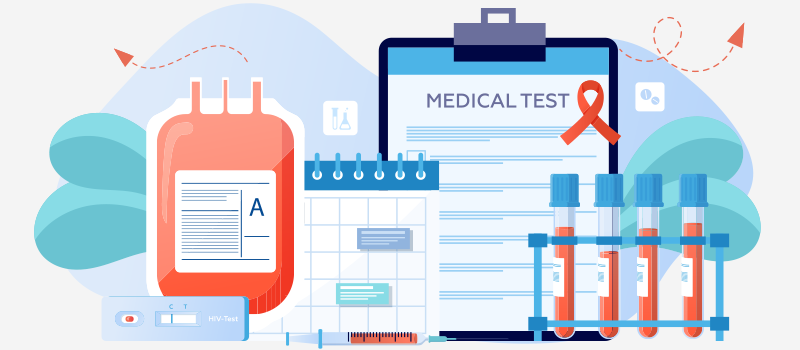What’s the Buzz
The Bee Healthy Blog
HIV Testing, Treatment, and Prevention

In honor of Men’s Health Month, we are encouraging friends and family to get tested for HIV this June. Getting tested regularly is one of the best ways to prevent the spread of this sexually transmitted disease. The Centers for Disease Control and Prevention recommends getting tested once per year if you’re sexually active. Abstinence is still the only 100% effective prevention for HIV, so if you or someone you know is sexually active and hasn’t been tested for HIV, now is the time!
June 27th, 2020 is National HIV Testing Day
An HIV test can seem scary, but in reality, it is only a simple blood test or swab from the inside of your cheek. Because some people may take an “ignorance is bliss” approach, it may take a friend or family member to help motivate someone to make an appointment. What you can do? Share this article. Use #HIVtestingday. Find a testing site near you and schedule an appointment right away.
Frequently Asked Questions
Who should get tested for HIV?
Those at increased risk for HIV should test this June if they were previously tested more than one year ago and if the previous test was negative.
Who is most at risk?
If you can answer “yes” to any of the following questions, you’re at increased risk for HIV:
- Are you a man in a sexual relationship with another man?
- Are you in a sexual relationship (anal or vaginal) with a partner who has HIV?
- Have you had more than one sexual partner since last tested?
- Have you injected drugs and shared injection equipment with others?
- Have you exchanged sex for drugs or money since your last test?
- Have you been diagnosed with another sexually transmitted disease?
- Have you been diagnosed with hepatitis or tuberculosis?
- Are you in a sexual relationship with anyone who can answer “yes” to any of these questions?
- Are you in a sexual relationship with anyone whose sexual history you don’t know?
“What happens if I test positive?”
A positive test means you can take steps to live healthier and help others around you to stay healthy. You can take medicine to treat HIV. Taking the medication regularly and as prescribed can keep your viral load low or undetectable, which helps to prevent transmission to an HIV-negative partner through sex.
“What if I’m pregnant?”
Testing for HIV during pregnancy is important for the health of the unborn baby and for treatment of the mother-to-be. If tested early in pregnancy, treatment can lower the risk of transmitting HIV to the baby to 1% or less.
“Can I get tested if I’m not at risk?”
It is actually recommended that people between the ages of 13 and 64 get tested for HIV at least once. This is considered routine healthcare. If you are considering sex with a new partner, even if you plan to be monogamous sexual partners, it’s important to know for certain if he or she has HIV.
“Is it true that HIV tests are only accurate 6 months after exposure?”
Because it takes time for your body to produce antibodies detected by medical testing, it sometimes requires multiple tests for a formal diagnosis of HIV. Factors that affect testing accuracy are the type of test used, how soon you’re tested after possible exposure, and how your body responds to HIV.

SOCIAL